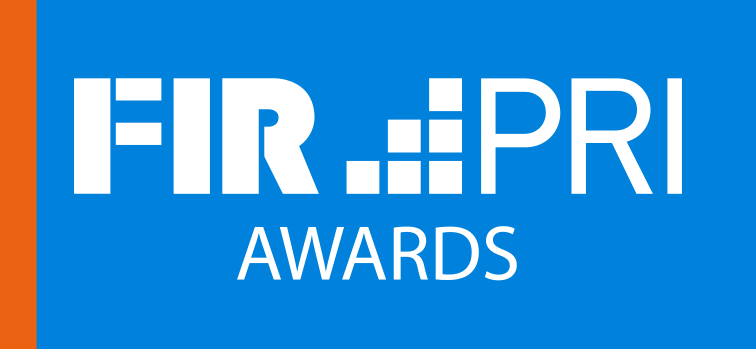Les Prix FIR-PRI “Finance & Développement Durable“ européens ont été créés en 2005 par le FIR pour récompenser l’excellence en recherche académique dans le domaine de la finance et du développement durable. Les Principes pour l’Investissement Responsable (PRI) sont partenaires depuis 2011.
Prix FIR-PRI
- Home
- Prix FIR-PRI
Chaque année, un appel à candidatures est lancé en janvier et avril dans cinq catégories : Meilleur Article publié, Meilleure Thèse de Master, Meilleure Thèse Doctorale, Meilleure Innovation Pédagogique et Bourse de Recherche pour une thèse doctorale en cours.
Le Jury, composé d’académiques et de professionnels se réunit deux fois, une première pour faire une présélection et une deuxième fois pour déterminer les vainqueurs. Les résultats sont traditionnellement annoncé lors de la Semaine de la Finance Responsable lors d’une cérémonie à laquelle les lauréats sont invités et lors de laquelle ils ont l’occasion de présenter leurs travaux.
Prix FIR-PRI 2025 – 20ème édition
La compétition est lancée en 2025 pour cette 20ème édition !
Cette édition du Prix est spéciale car cela fait maintenant deux décennies que le prix récompense la recherche universitaire dans le domaine de la finance durable. Le Jury est cette année présidé par Jean-Pascal Gond de la Bayes Business School.
Nous vous invitons à déposer vos candidatures dans les 5 catégories – Meilleur mémoire de Master, Meilleure thèse de doctorat, Meilleure initiative pédagogique, Meilleur Article publié et Bourse de recherche pour une thèse de doctorat en cours – jusqu’au 13 avril
L’édition 2024
Les lauréats des Prix FIR-PRI “Finance & Développement Durable“ 2024 ont été dévoilés en septembre. Le Jury, présidé cette année par Nicolas Mottis, Professeur à l’École Polytechnique a récompensé Farhan Aulia Rahman, meilleur mémoire de Master, Adrien-Paul Lambillon, meilleure thèse doctorale, Catherine Casamatta, Ulrich Hege, Sophie Moinas, Sébastien Pouget et Silvia Rossetto, meilleure Initiative pédagogique et enfin Matteo Gasparini, Ben Carr, Matthew Ives, Sophie Fry et Eric Beinhocker, Meilleur Article. Léo Denis a quant à lui obtenu une bourse de recherche doctorale.
La cérémonie de l’édition 2024 s’est déroulée le 1er octobre chez Mirova en présence de la plupart des lauréats.
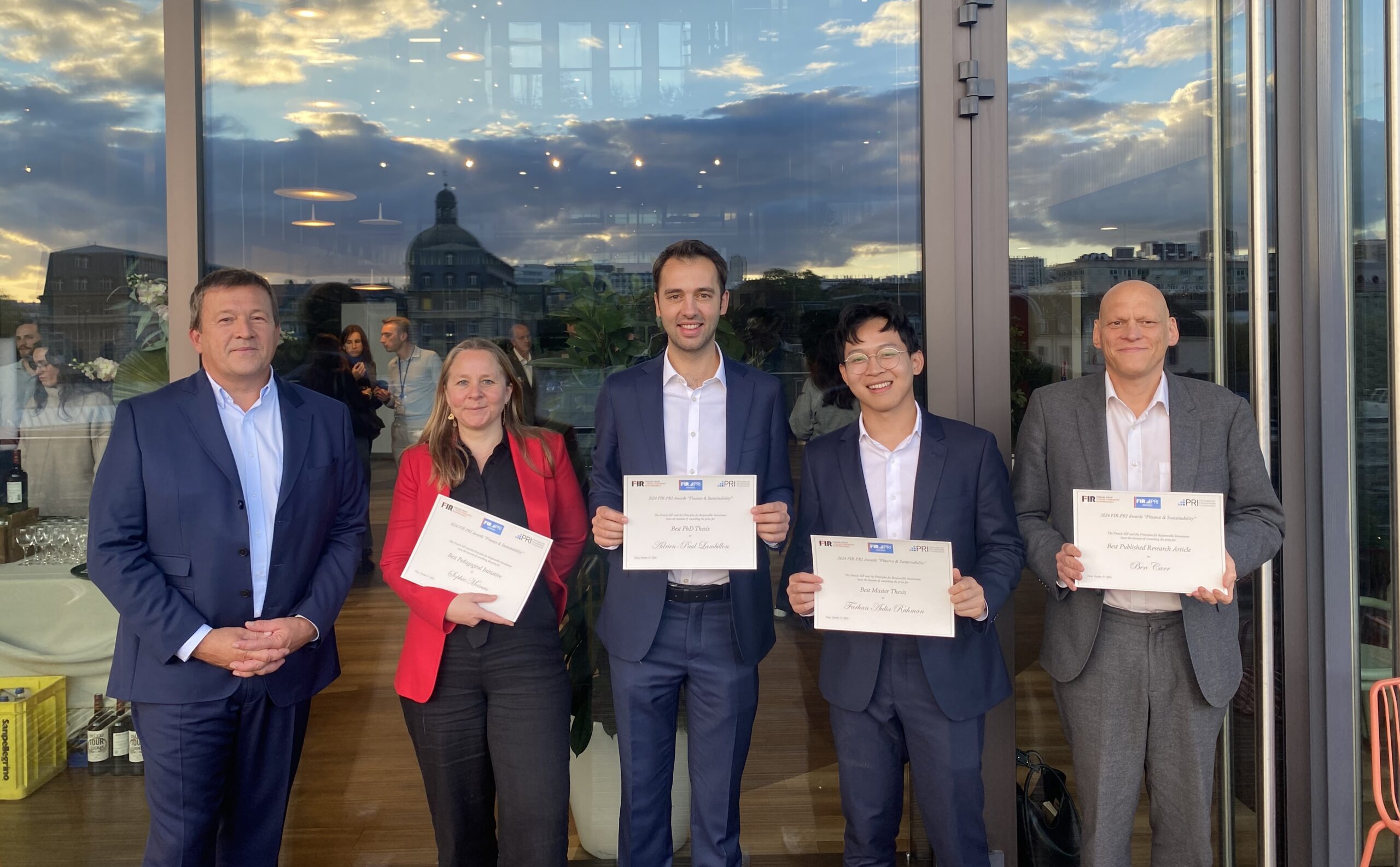
Sponsors & Partenaires
Sponsors
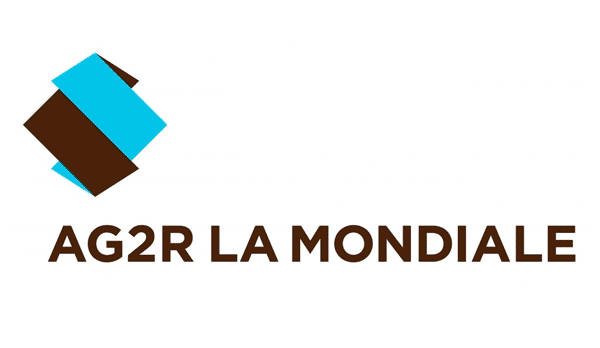
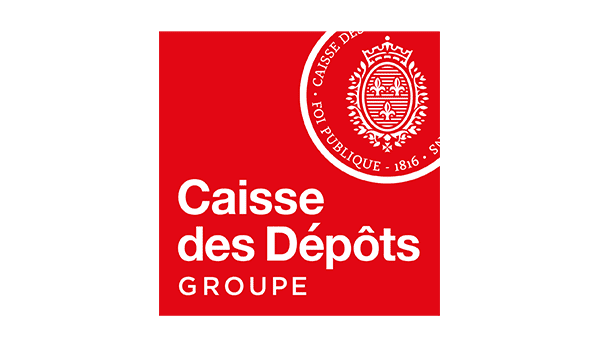
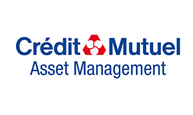




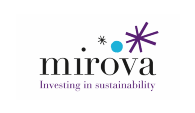
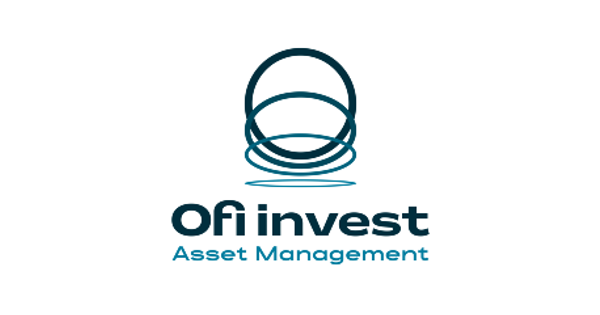

Les lauréats
Article de Recherche / Research Article
“Model-based financial regulations impair the transition to net zero carbon emissions”
Matteo Gasparini, Ben Carr, Matthew Ives, Sophie Fry & Eric Beinhocker – University of Oxford
Publié dans Nature Climate Change 14, 476–481 (2024)
« Do Investors Care About Impact? »
Florian Heeb, Julian Kölbel, Falko Paetzold & Stefan Zeisberger – University of Zurich
Publié dans The Review of Financial Studies 00 (2022) 1-51
« Get Real! Individuals Prefer More Sustainable Investments »
Rob Bauer, Tobias Ruof & Paul Smeets – School of Business and Economics at Maastricht University
Publié dans The Review of Financial Studies 34 (2021) 3976–4043
« Disentangling the effects of hedge fund activism on firm financial and social performance »
Mark DesJardine – Smeal College of Business at Pennsylvania State University & Rodolphe Durand – HEC Paris
Publié dans Strategic Management Journal, 2020 ; 41 : 1054–1082
« Leverage points in the financial sector for seafood sustainability »
Jean-Baptiste Jouffray – Stockholm Resilience Centre at Stockholm University
Co-authors: Beatrice Crona, Emmy Wassénius, Jan Bebbington, Bert Scholtens
Publié dans Science Advances, Vol 5, n°10, 2 octobre 2019
« Creating Common Ground: A Communicative Action Model of Dialogue in Shareholder Engagement »
Fabrizio Ferraro – IESE Business School & Daniel Beunza – Cass Business School
Publié dans Organization Science 29(6):1187-1207
« Fossil Fuel Divestment and Portfolio Performance »
Arjan Trinks – University of Groningen, Co-authors: Bert Scholtens, Machiel Mulder, Lammertjan Dam – University of Groningen
Publié dans Ecological Economics 146 (2018) 740–748
« When do Theories Become Self-Fulfiling? Exploring the Boundary Conditions of Performativity »
Emilio Marti (Swiss) & Jean-Pascal Gond (French)
Publié dans Academy of Management Review, 2017
« Credit Score System for Socially Responsible Lending »
Begoña Gutiérrez-Nieto, Carlos Serrano-Cinca & Juan Camon-Cala (Spanish)
Publié dans Journal of Business Ethics, 2016
« Active Ownership »
Elroy Dimson (British), Oguzhan Karakas (Turkish) and Xi Li (Chinese)
Publié dans The Review of Financial Studies, 2015
« Does Corporate Social Responsibility Lead to Superior Financial Performance? A Regression Discontinuity Approach »
Caroline Flammer (Swiss)
Publié dans Management Science, 2015
« Loyalty-Shares: Rewarding Long-term Investors »
Patrick Bolton (French and American) & Frédéric Samama (French)
« Portofolio Greenness and the Financial Performance of REITs »
Piet Eichholtz (Dutch), Nils Kok (Dutch), Erkan Yonder (Turkish)
Publié dans Journal of International Money and Finance, 2012
« Environmental Policy, Innovation and Performance: New Insights on the Porter Hypothesis »
Paul Lanoie (Ca ), Jérémy Laurent-Lucchetti (Fr), Nick Johnstone (USA), Stefan Ambec (Fr)
Publié dans Journal of Economics and Management Strategy, 20 (3), 803-841. automne 2011.
« Does the Stock Market Fully Value Intangibles? Employee Satisfaction and Equity Prices »
Alex Edmans (UK)
Publié dans Journal of Financial Economics 101(3), 621-640, September 2011
« Stakeholder perspectives on a financial sector legitimation process – The case of NGOs and the Equator Principle »
Niamh O’SULLIVAN & Brendan O’DWYER (Irlande)
Publié dans Accounting, Auditing and Accountability Journal – 2009 Vol. 22 issue 4
« Properties of the Social Discount Rate in a Benthamite Framework with Heterogeneous Degrees of Impatience »
Diego Nocetti (USA), Elyès Jouini (France/Tunisie), and Clotilde Napp (France)
Publié dans Management Science
« Corporate Social Responsibility and Managerial Entrenchment »
Giovanni Cespa et Giacinta Cestone (Italie)
Universita di Salerno
« On Precautionary Policies »
Bernard Sinclair-Desgagné / Pauline Barrieu – France
« The Eco-efficiency Premium Puzzle »
Jeroen Derwall – Université Erasmus de Rotterdam
Thèse Doctorale / PhD
“Sustainable Finance or Financialization of Sustainability?”
Adrien-Paul Lambillon – University of Zürich
« Sustainable investment preferences and how they are delegated »
Marten Laudi – Maastricht University
« Finance et climat : enjeux, risques et organisation »
Vincent Bouchet – École Polytechnique
« Asset pricing and impact investing with pro-environmental preferences »
Olivier David Zerbib – Tilburg University
« Finance in the Face of Global Challenges – Essays on the Financial Economics of Climate Change & the Agency Cost of Debt »
Nora Pankratz – Maastricht University
« Optimal Diversification and the Transition to Net Zero: A Methodological Framework for Measuring Climate Goal Alignment of Portfolio Investors »
Jakob Thomä – CNAM
« Corporate Social Responsibility and Capital Markets: Evidence from Mergers and Acquisitions »
Mathieu Gomes – Université Clermont Auvergne
« Social finance and the Commons »
Camille Meyer – Université Libre de Bruxelles
« Essays on Institutional Investment and Socially Responsible Investing »
Lisa Schopohl – Henley Business School
« Corporate Governance and Firm Performance: The Sustainability Equation? »
Gwenaël Roudaut – École Polytechnique
« Finance and Society: On the Foundations of Corporate Social Responsibility »
Hao Liang – University of Tilburg
« Experimental Studies on Moral Values in Finance: Windfall Gains, Socially responsible investment, and Compensation plans »
Marco Heimann – University of Toulouse
« Can private Equity Funds Foster Corporate Social Responsability ? »
Vanina Forget – École Polytechnique (departements of Economics)
« Empirical Investigations of the Relationship between Corporate Social and Financial Performance »
Ioannis Oikonomou – Henley Business School & University of Reading
« Institutional Change in the Making – The Case of Socially Responsible Investment »
Diane-Laure Arjaliès – ESSEC Business School & Université Paris Ouest Nanterre-La Défense
Le jury a décidé de ne pas remettre de Prix dans cette catégorie en 2010
« Corporate Governance and Sustainability in Global property Markets »
Nils Kok – Maastricht University
« The Economic Virtues of SRI and CSR »
Jeroen Derwall – RSM Erasmus & Maastricht Universities
« Identifiying and Overcoming Behavioural Impediments to Long Term Responsible Investments – A Focus on UK Institutionnals Investors »
Danyelle Guyatt – Université de Bath
« Ethical Investment; Processes and Mechanisms of Institutionalisation »
Celine Louche – Vierick Gent Leuven Management School
Mémoire de Master / Master Thesis
« The integration of ESG data into the valuation models of asset managers »
Farhan Aulia Rahman – Utrecht University School of Economics
« The integration of ESG data into the valuation models of asset managers »
Amélie Goureaux – ESCP Business School
« Bias assessment and mitigation for ESG scoring models »
Mathieu Joubrel, École Polytechnique
« Lending for sustainability »
Yujie Leng & Ha Tuyet Nguyen – BI Norwegian Business School
« ESG Controversies’ Media Sources Concentration as a Threat to Responsible Investors »
Anatole Douaud – Kedge Business School
« Superbugs and Super risks: A critical assessment of antibiotic resistance as a frontier topic in responsible and sustainable investment »
Abigail Herron – University of Cambridge
« Sustainability bonds, a lever for sustainable economic development in emerging countries? »
Mélanie Comble – Kedge Business School
« Portfolio Analysis Using Water Shadow Pricing: How Valuing Water Risk Can Reduce Carbon Emissions »
Catherine Chisem (British) – University of Edinburgh Business School
« Access to Finance and Corporate Social Responsibility: Evidence from a Quasi-Natural Experiment »
Vanya Rusinova (Bulgarian) – Copenhagen Business School
« Communicating Climate Change: How Learning, Language and Leadership Can Impact Institutional Investment Decisions in Australia and the United Kingdom »
Elizabeth Harnett (British) – University of Oxford
« Divestment of fossil fuel equities, its financial implications, and alternative asset allocation strategy »
Mayank Kumar Jain (Indian) – Imperial College London & Henley Business School
« Shale Gas and Hydraulic Fracturing: Risk and Opportunity Analysis for Oil and Gas Companies, Investors and The Future Energy Sector-Lessons from the US »
Theodor Cojoianu (Romanian) – The University of Edinburgh
« Payments for Environmental Services and microfinance: Proyecto Cambio in Nicaragua »
Davide Forcella (Italian) – Université libre de Bruxelles
« Socially Responsible Mutual Funds : the impact of fund governance on performance and attractiveness »
Enguerran Petit – Ecole Centrale de Nantes & Politecnico di Milano
« Meeting the challenge of impact investing: How can contracting practices secure social impact without sacrificing performance? »
Madeleine Evans (US) – London School of Economics, UK
« RSE et performance des entreprises – Réaction des marchés financiers à l’annonce de prix environnementaux »
Thibault DAUPHIN (France) – European Business School, Oestrich-Winkel, Allemagne
« Comprendre et chiffrer la « green value » »
Aurélien CHAZEL (France) – Paris I Panthéon Sorbonne, France
« A behavioral finance perspective on sustainable energy environment decisions »
Mélanie Oschlies (Allemagne) – University of St Gallen (Suisse)
« Corporate Responsibility in Supply Chain Management – Case environmentaly Responsible Procurement »
Kaisa Jungman (Finlande) – Helsinki University of Technology
« Risk Management Strategies and Practices in Response to the European Union Emissions Trading Scheme »
Eeva Lappalainen – Université d’Helsinki – Finlande
« Environmental Business Accounting in four Finnish Case companies »
Anna Kumpulainen – Université d’Helsinki
Bourses de Recherche / Research Grants
“Towards impact-based contracting, the case of private equity”
Léo Denis : leo.denis(a)polytechnique.edu – École Polytechnique
« Financial Constraints and Emission Intensity »
Eleonora Sfrappini: Eleonora.Sfrappini(a)iwh-halle.de – Halle Institute for Economic Research (IWH)
« The green elephant in the room: Does sustainable investing reduce greenhouse gas emissions? »
Nikolaus Hastreiter : nikolaus.hastreiter(a)gmail.com
London School of Economics and Political Science
« Heated bonds? The impact of climate risks on the value of sovereign bonds »
Karolina Bassa : karolina.bassa(at)bnc.ox.ac.uk
University of Oxford
« Managerial Incentives and the Ethics of Corporate Governance »
Etienne Develay : etienne.develay2016(a)my.ntu.ac.uk
Nottingham Business School
« Stranded States? Public Management of Fossil Fuel Asset in the International System »
Alex Clark : mailto:icsalexclark@gmail.com – University of Oxford
« Do investors care about impact? An experimental approach »
Florian Heeb (German) – University of Zürich
« Productivity Loss from Heat and Stock Returns in Europe »
Nora Pankratz (German) – Maastricht University
« Fiduciary Duty of Financial and Extra-financial Performance in Modern Sustainable (SDGs) and Socially Responsible Investment »
Liudmila Strakodonskaya (Russian) – Paris II Panthéon-Assas – CRED
« CSR within morally objectionable businesses: Can what’s done be undone? »
Salma Ktat (Tunisian) – Université des Antilles et de la Guyane
« Developing metrics and tools to help align financial portfolios with climate and energy investment scenarios »
Jakob Thomä (German) – Conservatoire National des Arts et Métiers
« Understanding the Dynamics of Voting on Shareholder Proposals »
Liviu Andronic (Romanian) – IAE Toulouse
« Responsible Investment and the Chinese Stock Market »
Michael L.Barnett (US), Xing Chen ( Chinese), Andreas G. F. Hoepner ( German) & Qian Li (Chinese) – University of Oxford & University of St Andrews
« Institutional Complexity in a Transition Industry: the Case of Responsible Investment »
Daniela Laurel (Fl) – Politecnico di Milano
« Rethinking Financial Disclosure for Retail Investors: A Tailor-Made Approch based en recent Reforms in Nutritional Labelling »
Elsa Savourey (French), Daniel Litwin ( Canadian) – University Paris 1 Panthéon Sorbonne & McGill University
« Sustainability Reporting in Capital Markets: A Black Box »
Alexandra Duarte Correia (Portugal) – Vrije Universiteit Amsterdam, The Netherlands
« Similarity in Values and the Perceived Trustworthiness Of Investment Funds »
Marco Heimann (Allemagne) – University of Toulouse and CNRS, France
« Does pension funds’ fiduciary duty prohibit the integration of any ESG criteria in investment processes? »
Andreas Hoepner (Allemagne) – University of St. Andrews, UK
« ESG in Mainstream Portfolios : a dominant convention perspective »
Christel DUMAS (Belgique) – Université de Gand, Belgique
« Marketization of ethics; does it work? Exploring the scenarios where firm’s social behavior is not reflected in its market performance »
Afshin MEHRPOUYA (Iran) – Essec, France
« What gets measured gets managed? SRI indices and responsible corporate behaviour »
Catharina SLAGER (Hollande) – Nottingham University Business School, UK
Bourse de Recherche « Instruments financiers »
« Internalisation des externalités dans les grands projets »
Dorothee Teichmann (Allemagne) – Université Paris-Dauphine (France)
Bourse de Recherche « Social »
« What is the relationship between the Corporate Social Responsibility (CSR), practices of a firm and the firm’s value/performance »
Oguzhan Karakas (Turquie)/Elroy Dimson (UK) – London Business School
Bourse de Recherche « Marketing ISR »
« Concilier solidarité et rentabilité : l’enjeu des performances sociales dans les institutions de microfinance au Sénégal »
Sonia Rahal (France) – Université Paris 1 La Sorbonne
« Socially Efficient Discounting under Ambiguity Aversion »
Johaness Gierlinger (Autriche) – Toulouse School of Economics
« Real Options Approach to Valuation of the Voluntary Targets Proposal »
Kirill Zavodov (Russie) – University of Cambridge
« Le marché européen du CO2 : efficience et déterminants du prix du quota »
Emilie Alberola – Université Paris X – France
« Modélisation du risque dans la finance solidaire : une analyse empirique via l’économie expérimentale »
Simon Cornée – Université de Rennes 1 – France
Initiative Pédagogique / Pedagogical Initiative
Case study “Corporate Tools for Climate Action: An Internal Carbon Price for Getlink?”
Catherine Casamatta, Ulrich Hege, Sophie Moinas, Sébastien Pouget & Silvia Rossetto – Toulouse School of Economics
SuFi – Sustainable Finance Masterclass
Sophie Béreau – UNamur, Christel Dumas – ICHEC Brussels Management School & Marek Hudon – Solvay Brussels School of Economics and Management (ULB)
Transition Risk Stress – Test Simulation
Jakob Thomä – SOAS University of London
Future-proof your climate strategy: Smart companies are putting their own price on carbon
Joseph E. Aldy – Harvard Kennedy School & Gianfranco Gianfrate – EDHEC Business School
Published by Harvard Business Review
Le Jury a décidé de ne pas remettre de Prix dans cette catégorie.
CAS Sustainable Finance
Andrea Baranzini – Haute École de Gestion de Genève, Antoine Mach, Covalence & Jean Laville – Conser Invest
MSc Finance Responsable – Corporate & Sustainable Finance
Christophe Revelli (French) – Kedge Business School
« Two Degree Pathways decision support tool » used for Oil majors wargaming
David Kampmann, Lucas Kruitwagen (University of Oxford) & Shane Tomlinson (E3G) – University of Oxford
MOOCs « L’impact investing : la finance qui change le monde »
Thierry Sibieude (French)
Corporate Sustainability – Finance Track
Julian Kölbel (German), Falko Paetzold (German) and Volker Hoffmann (German)
Course taught at ETH Zürich in 2015
